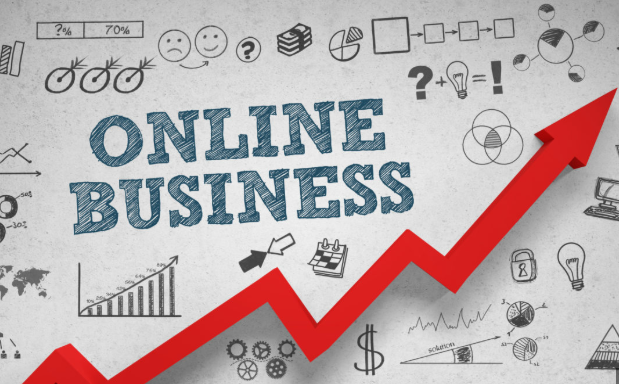The digital frontier has reshaped the very DNA of modern commerce. What once required storefronts, foot traffic, and regional advertising now unfolds seamlessly across browsers and bandwidth. At the heart of this transformation lies the online business an ever-evolving realm where ambition meets innovation, and geography holds little sway.
To thrive in this environment demands more than a web presence. It requires strategic foresight, adaptability, and a keen understanding of the digital economy’s shifting tides.

The Rise of the Online Business
An online business is not simply a virtual version of a brick-and-mortar model. It is a paradigm shift. It unlocks 24/7 accessibility, global audiences, and the ability to pivot in real time. From digital marketplaces to subscription platforms, the modern entrepreneur now operates in a borderless, algorithm-driven marketplace.
At its best, the online business democratizes opportunity. A solopreneur in a remote village can now rival corporations in reach and revenue, provided the strategy is sound and the execution seamless.
Unlike traditional commerce, online enterprises often benefit from lower overheads, deeper data insights, and greater scalability. But this efficiency comes with its own challenges: intensified competition, relentless technological change, and the constant need for visibility in a crowded digital landscape.
Decoding the Types of Businesses Online
Understanding the vast spectrum of the digital economy begins with recognizing the diverse types of businesses that operate within it. The online world accommodates a mosaic of models, each with unique characteristics and demands.
- E-commerce Business: Perhaps the most recognized, the e-commerce business encompasses everything from single-product shops to sprawling marketplaces. Whether selling handmade jewelry or dropshipping electronics, this model hinges on user experience, payment security, and logistics efficiency.
- Service-Based Businesses: Consultants, freelancers, and agencies offering services—from graphic design to legal counsel—utilize digital platforms to market expertise rather than physical goods. Time becomes the currency, and reputation the equity.
- Subscription Models: From software-as-a-service (SaaS) to digital learning platforms, subscription-based online businesses thrive on recurring revenue. They emphasize customer retention, continuous value delivery, and community-building.
- Affiliate Marketing: This model allows entrepreneurs to earn commissions by promoting products or services from other providers. Success here requires trust, targeted traffic, and a deep understanding of buyer psychology.
- Content Monetization: Blogs, podcasts, YouTube channels, and newsletters monetize attention. Advertising, sponsorships, and premium access models convert digital engagement into income.
Each of these types of businesses has distinct demands. Yet they all rely on common pillars: visibility, value proposition, and user trust.
Evolving Dynamics of the E-commerce Business
The e-commerce business has become a dominant force in global retail, accelerated by mobile commerce, social selling, and digital payment innovation. Yet its success hinges on more than listing products online.
Product curation, brand storytelling, seamless checkout flows, and post-purchase engagement are critical components. Consumers no longer just buy products—they buy experiences. And in a landscape saturated with choices, differentiation becomes the lifeline.
Modern e-commerce businesses harness data to anticipate trends, personalize marketing, and optimize inventory. Artificial intelligence is increasingly used for customer service, while augmented reality allows consumers to “try before they buy.” The future is frictionless, personalized, and omnichannel.
Moreover, ethical considerations now influence buying behavior. Sustainability, transparency, and inclusivity are not just buzzwords—they are competitive advantages. Businesses that align profit with principle stand out amid the noise.
The Digital Arsenal: Tools and Strategies
To master the online business landscape, one must be equipped with a digital arsenal. This includes:
- SEO and Content Marketing: Visibility begins with relevance. Producing meaningful, keyword-rich content not only informs but also attracts.
- Email Marketing: Despite the rise of social media, email remains a powerful tool for conversion and loyalty-building. Segmentation and personalization are key.
- Analytics: Data is the compass. Understanding customer behavior, bounce rates, and conversion metrics empowers smarter decisions.
- Automation: From chatbots to automated emails and inventory syncing, automation enhances efficiency and scalability.
- Cybersecurity: Trust is everything in the digital space. Ensuring data protection and secure transactions is foundational.
Challenges and Considerations
Despite the appeal, the digital marketplace is not without its perils. Algorithms can change overnight, advertising costs can surge, and consumer attention is increasingly fragmented.
New entrants must contend with seasoned competitors and tech-savvy buyers. Patience, persistence, and continuous learning are essential. Moreover, success in online business is rarely linear—it demands iteration, resilience, and the ability to pivot with agility.
Regulatory environments also vary globally. Taxes, shipping regulations, and privacy laws must be navigated with precision, especially for e-commerce businesses operating across borders.
Conclusion: Charting a Course in the Digital Arena
Mastering the online business landscape is not merely about embracing technology—it is about understanding human behavior in a digital context. Whether operating as a nimble freelancer, a curated e-commerce business, or a scaled content brand, the principles remain: authenticity, strategy, and relentless value delivery.
In the grand arena of modern commerce, success belongs not to those with the loudest ads, but to those with the clearest vision and the deepest customer understanding.
For the discerning entrepreneur, the digital frontier is not just an opportunity—it is a canvas. And on it, every decision draws the line between obscurity and impact.











More Stories
Top Tips for Maximum Security on Your Dedicated Server
How to Choose the Best Email Hosting Solution for Small Businesses
Top Benefits of Email Hosting For Enhancing Client Communication